Deputy Minister of Water Resources: Uzbekistan will lack 7 billion cubic meters of water by 2030
Within the framework of the second Tashkent International Investment Forum, a panel session was held on the topic “Integrated Water Resources Management: Sustainable Development of Agriculture, Ensuring Food Security in Central Asia”.
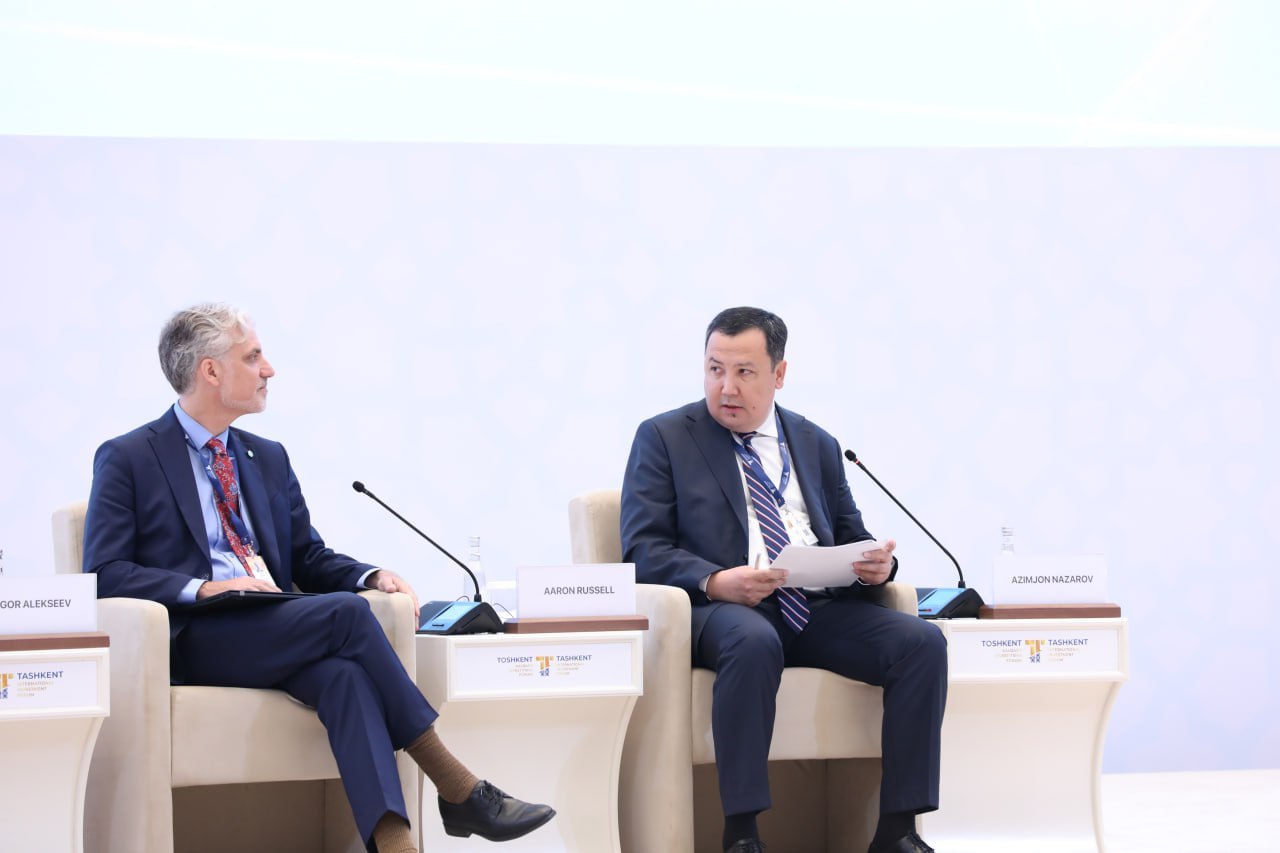
Photo: miit.uz
The event was moderated by the Permanent Representative of the UN Development Program Matilda Dimovska.
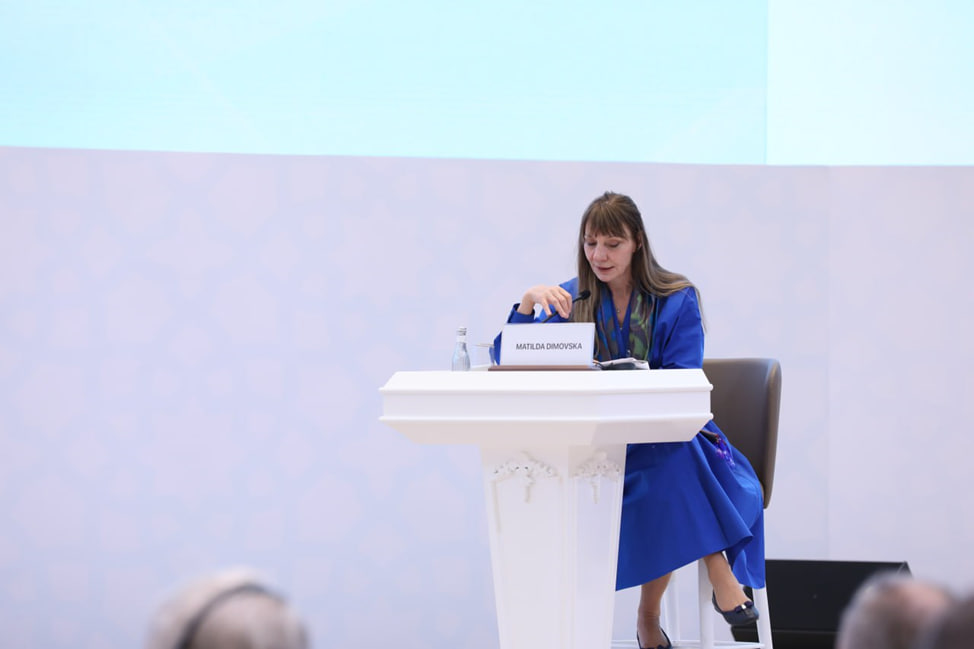
The speakers were Deputy Head of Mission, Head of the Cooperation Department of the Embassy of Switzerland Rachel Besh, First Deputy Minister of Water Resources Azimjon Nazarov, MD and Partner of Boston Consulting Group Igor Alekseyev, Partner of Synergy Consulting Chetan Kapur, Vice President of ACIR South Europe Yegor Junyayev and others.
According to experts, the growing demand for water resources by 2040-2050 will inevitably lead to structural changes in the global economy. According to a report by the World Meteorological Organization, by 2050, more than 5 billion people on Earth will experience water scarcity to one degree or another. The panel session participants stressed that water scarcity can become a serious problem for the development of the agricultural sector and the economy as a whole.
The speakers discussed the importance of integrated water resources management for sustainable agricultural development and food security in Central Asia. Measures to be taken for the effective implementation of integrated water resources management mechanisms were also discussed.
First Deputy Minister of Water Resources of Uzbekistan Azimjon Nazarov noted that 80% of water resources come from other countries, and only 20% is generated in the country. The infrastructure, which was created 30-40 years ago, requires serious modernization. As the supply of water resources decreases, the number of new facilities increases, the population grows, a new quantity and quality of water resources are required. According to calculations, by 2030 Uzbekistan will lack 7 billion cubic meters of water. He emphasized the need for rational use of water.
This was confirmed by Igor Alekseyev, MD and Partner, Boston Consulting Group.
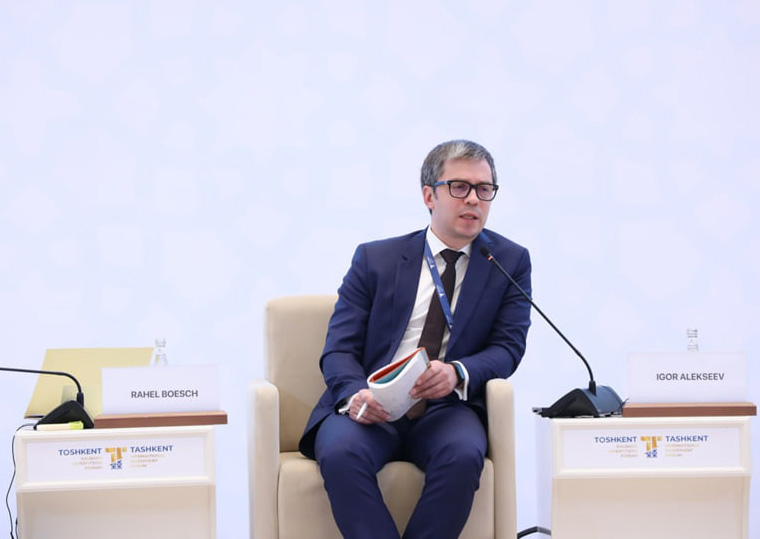
“If we collect all the initiatives in Uzbekistan on water conservation, then investments of about $19 billion will be required, of which 4 billion - for pumping stations and about 6 billion - for subsidies to economic agents for the introduction of water-saving technologies. Together with the Ministry of Finance and the Ministry of Water Resources, we have developed a model of the canal system with an assessment of the function of these canals. And most importantly, economical water supply in a particular area,” he said.
Specialists noted that the priority should be measures aimed at additional volumes of water resources in the regions of the country: these are both new dams and new reservoirs.
In particular, the participants of the panel session stressed the importance of creating the right legal and institutional conditions for the implementation of such mechanisms. The event also discussed measures that will ensure the sustainable development of the agricultural sector. Experts noted that it is necessary to improve access to water resources and improve technologies and methods of using water in agriculture.
“The panel session has become an important part of the forum and an excellent platform for the exchange of experience and knowledge between experts and government officials involved in water management in Central Asia. The event made it possible to develop new ideas and recommendations that will help ensure the sustainable development of the agricultural sector and food security in the region,” the conclusion says.
Recommended
List of streets and intersections being repaired in Tashkent published
SOCIETY | 19:12 / 16.05.2024
Uzbekistan's flag flies high on Oceania's tallest volcano
SOCIETY | 17:54 / 15.05.2024
New tariffs to be introduced in Tashkent public transport
SOCIETY | 14:55 / 05.05.2023
Onix and Tracker cars withdrawn from sale
BUSINESS | 10:20 / 05.05.2023
Latest news
-
Russia aims to advance promotion of Russian language abroad, including in Uzbekistan
POLITICS | 12:07
-
Lithuania extradites fraud suspect to Uzbekistan
SOCIETY | 11:30
-
Uzbekistan boosts fruit exports by 43%, reaching $368 million in six months
BUSINESS | 10:44
-
Investors vs. homeowners: Economist defends property owners as Deputy Minister blames residents for renovation delays
SOCIETY | 08:15
Related News

21:53 / 09.07.2025
UN labels Gulnara Karimova’s detention unlawful, Uzbekistan disputes allegations
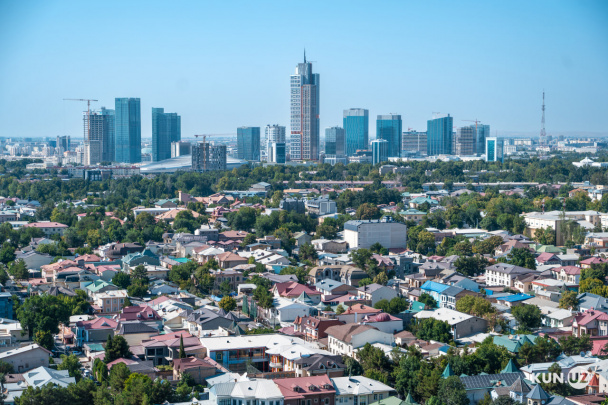
20:34 / 07.07.2025
Uzbekistan's economy expands 6.8% in first half of 2025
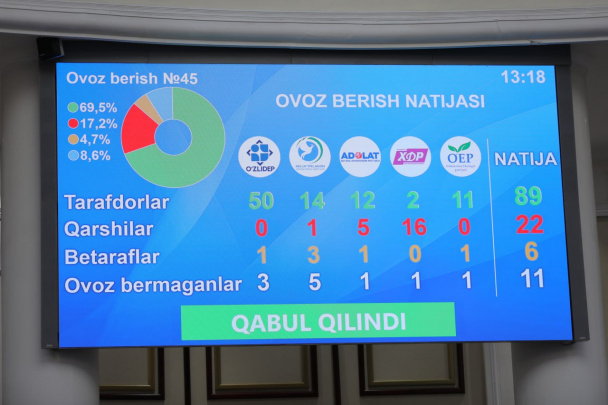
12:46 / 07.07.2025
New penalties and obligations await farmers: Draft law sparks controversy among deputies
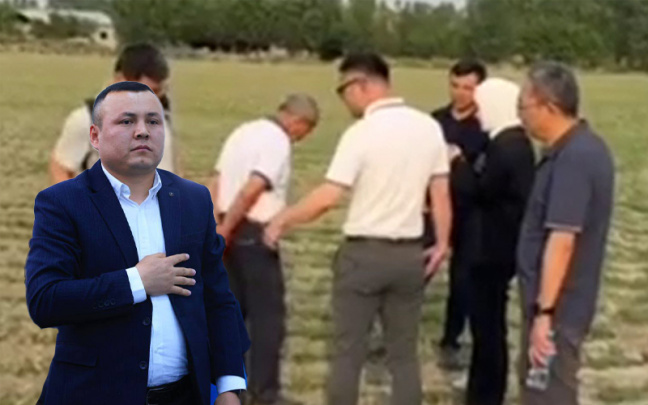
14:58 / 26.06.2025



